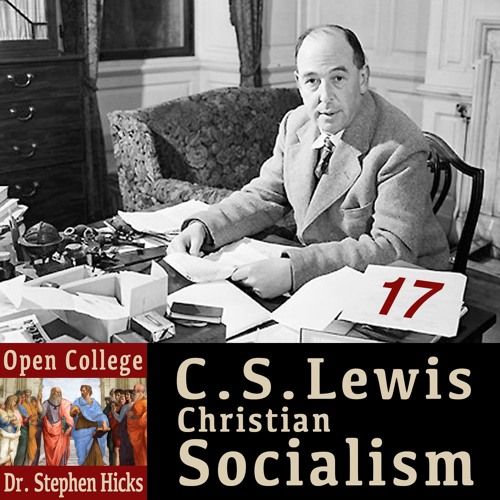A new episode of my podcast series, produced by Possibly Correct out of Toronto.
Audio:
Topics: Should Christians be socialists, and was C.S. Lewis a socialist? // Mere Christianity‘s themes // Liberal-libertarian principles — free-market economics and property rights, competence to run your own life, self-responsibility, self-respect and dignity for all, universalism and equal liberty for all, self-ownership — and Lewis’s views on them // An unresolved tension in Lewis’s thinking.
Transcription: Available at my thinkspot page.
Sources:
- Kian Hudson, “Politics According to C.S. Lewis,” Law and Liberty, 2016.
- C. S. Lewis, Mere Christianity, Collier/Macmillan, 1943, 1945, 1952.
- Peter Wehner, “The Political Magic of C. S. Lewis,” The New York Times, Sept. 24, 2016.
- David Theroux, “C. S. Lewis on Mere Liberty and the Evils of Statism,” Independent Institute, 2010.
- David Urban, “Was C.S. Lewis a Libertarian?” Foundation for Economic Education, 2017.
Related:
- Pope Francis, C. S. Lewis, and Christian economics
- Self-esteem in Walt Whitman and C. S. Lewis
- Why C. S. Lewis gives me the creeps
- Freud and original sin
- Theist vs. Atheist: What Should You Believe?
- Conservatives: Get Over the Dark Ages [Open College transcript]
The complete series of Open College with Stephen Hicks podcasts.

I think that you describe the essence of Lewis’s philosophy and his theology accurately and in keeping with his own words. My one point of difference is that I do not think Lewis is in any substantive way a socialist in the sense that we use term today. When we invoke the term socialism today, I think that we are referring to large totalitarian societies ruled by authoritarian political elites who enforce collective dogma. I think that when Lewis uses the term socialism he means something more akin to communalism or a community of overarching brotherhood in which the common bond is a joint metaphysical connection to Christ and God. This is, at least in my understanding, quite different from 21st century Neo-Marxist Socialism.
Which turned out to be unachievable so they went to where we are today